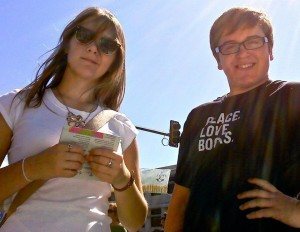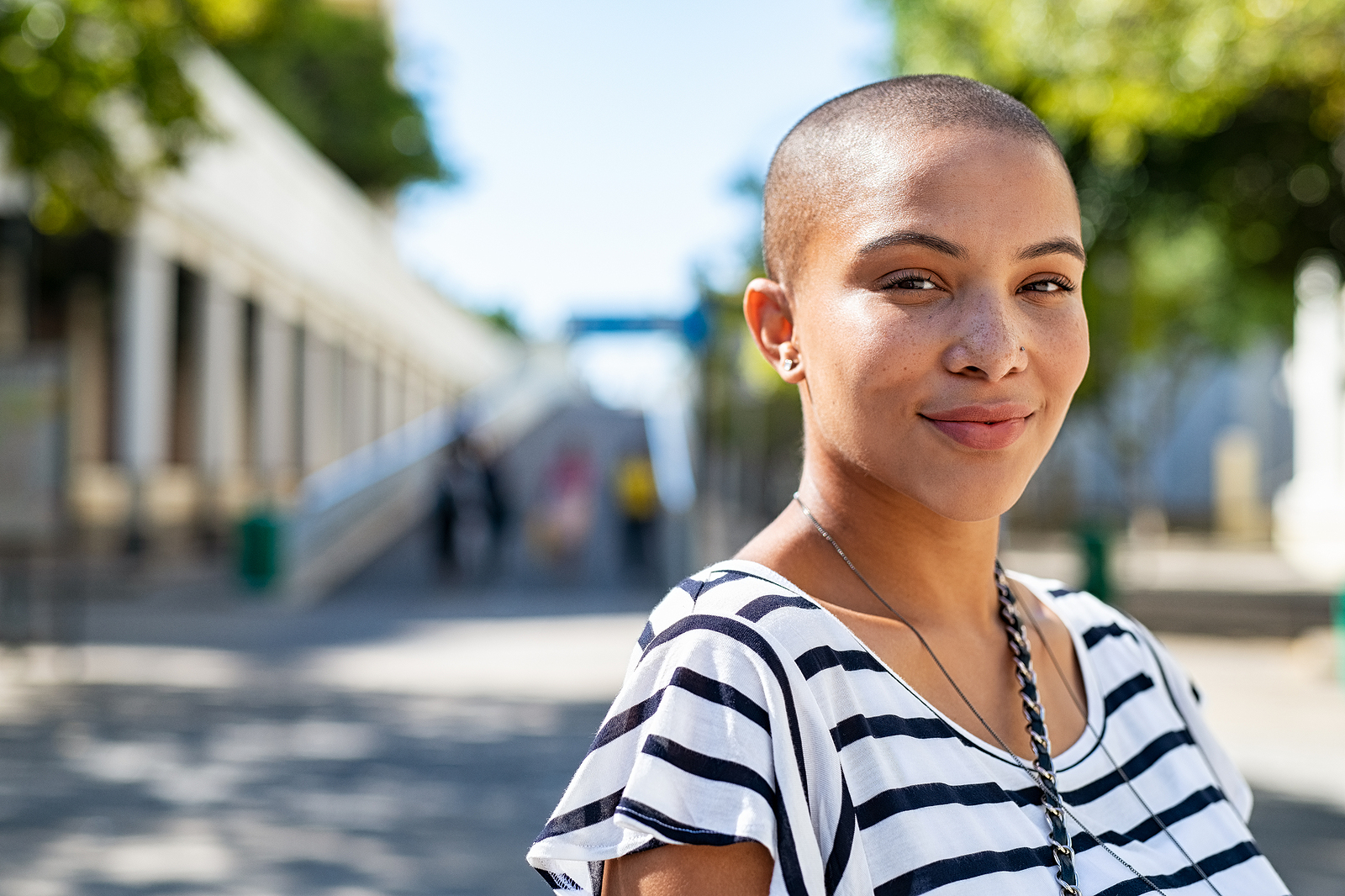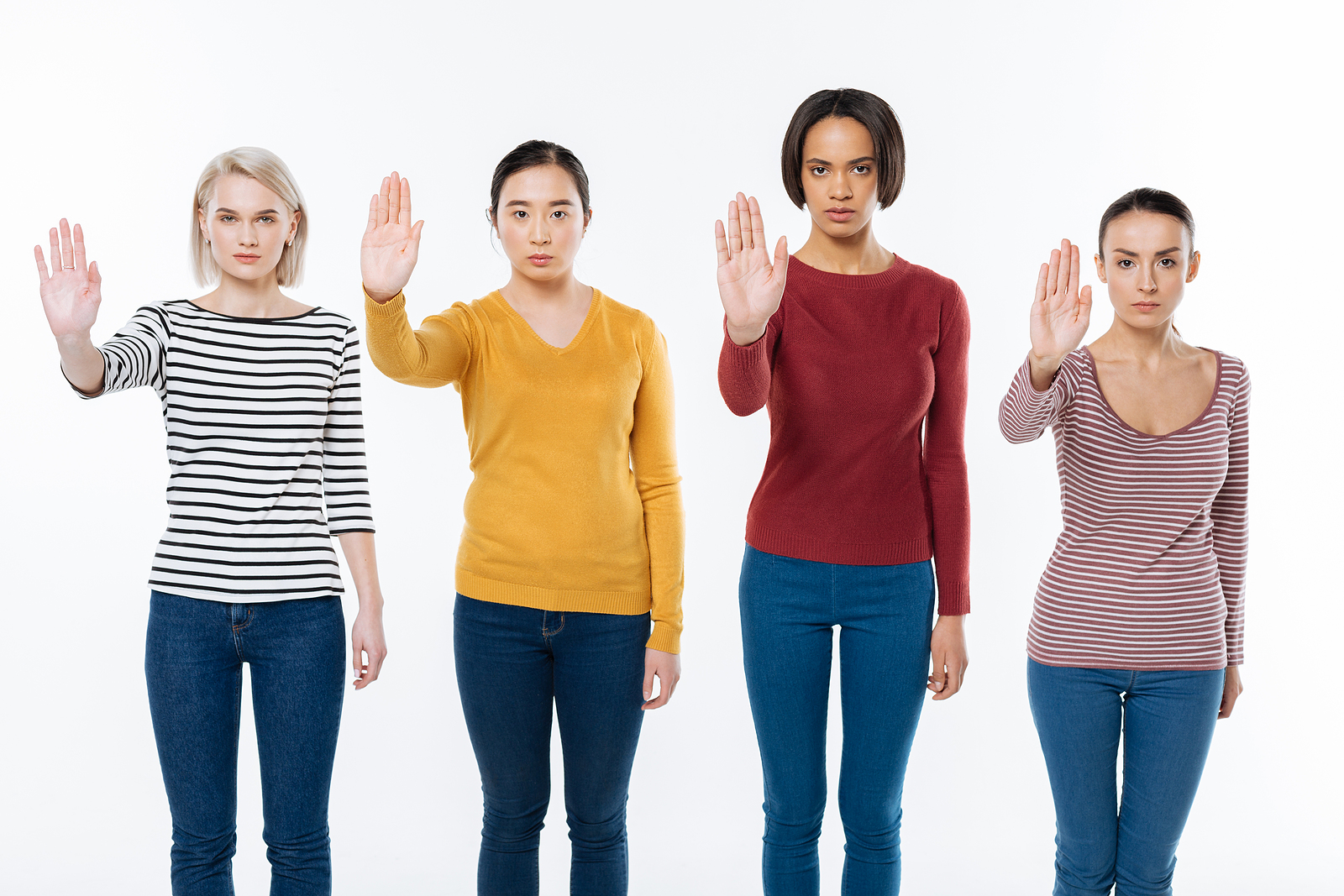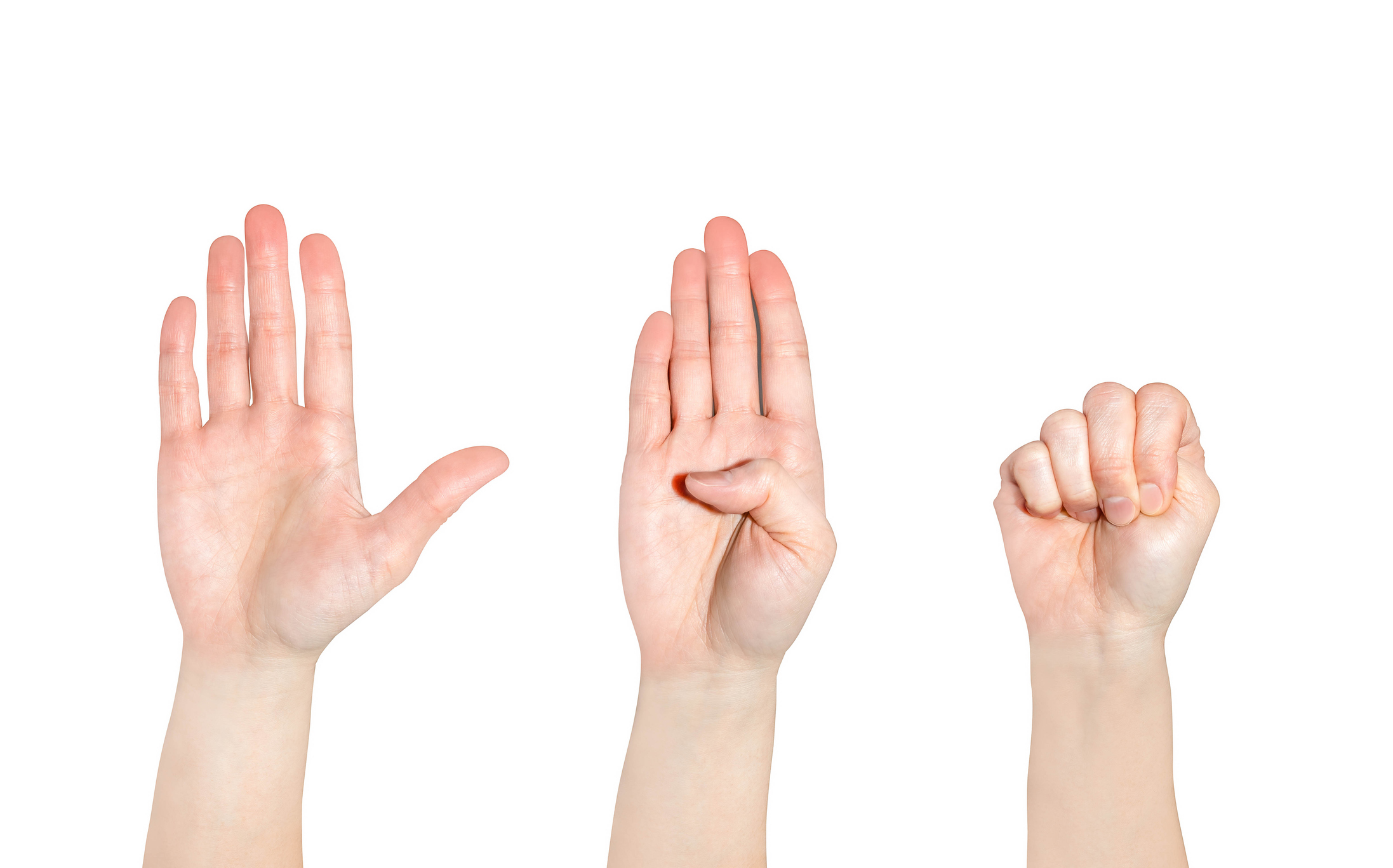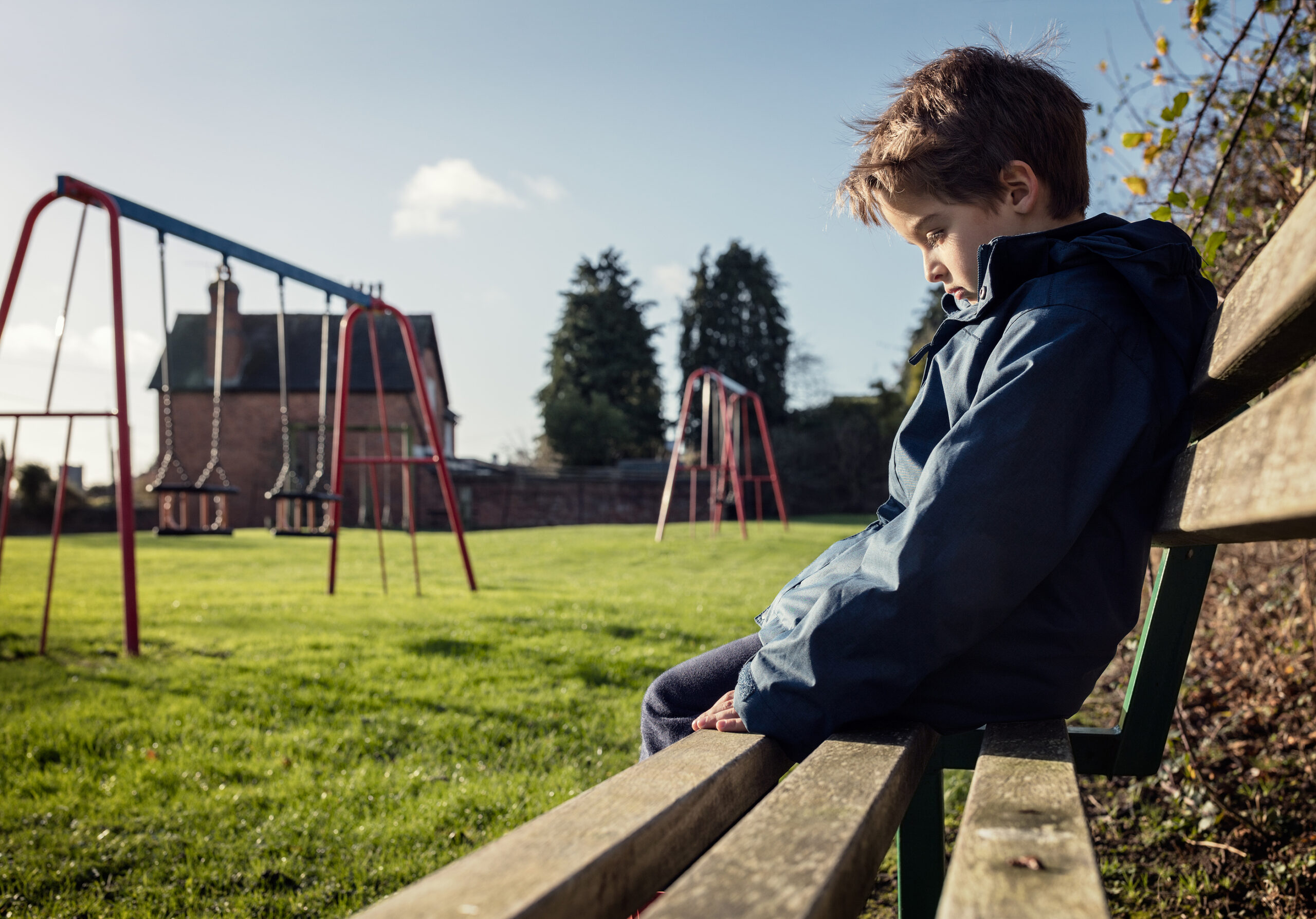By Dylan Magruder
140 lbs.
The summer soccer camp at Furman University made me fat.
That is, quitting the soccer camp after five days. On that fifth day, the college students teaching us showed us how to make goals. They lined us up behind a yellow dash painted in the grass. A soccer ball lay on the dash, one that we were supposed to kick into the goal. Everyone in line before me managed to kick the ball into the air and have it land in the very back of the net. I ran at the ball, slammed my Chuck-Taylor clad foot into it, and watched it fly less than eight feet and roll over the goal line. The ball didn’t touch the net. I heard shuffling behind me but no laughter. I turned around and saw all the kids behind me with their hands over the mouths, faces turning pink as they held their breath. My face went bright red like the color of the sky when the sun goes down and it’s going to rain tomorrow.
Point of information: blushing is caused when adrenaline makes facial capillaries dilate. I have been told that when I blush, my ears turn a shade of red similar to undercooked beef juice This comparison is on the list titled “Reasons I Do Not Eat Beef”—it falls between “blood sucking tapeworms” and “red meat causes cancer.” Both maladies occurred on Grey’s Anatomy—neither patient survived. Positive spin: no one has ever died of blushing.
Someone snorted, but I couldn’t tell who. Everyone’s expression was hidden—they all refused to look at me. Some were red as I was. All had their hands over their mouths—like they were embarrassed at my embarrassment.
In Mexican Spanish, they call that pena ajena. Literally it means “penalty to others,” like the others are being punished because I was embarrassed. Yeah, they should see it from this side of the glass.
I walked to the back of the line and waited for my turn to kick a second time. This time, I was determined to kick the ball like everyone else. My turn came, and I ran at the ball, faster. I slammed my foot into it, sending little blades of grass into the air behind the ball. It flew the same eight feet, landed, and stopped moving almost immediately, not even rolling to the kid standing in from of the goal, playing goalie.No one was as kind that time. People laughed openly at my failure.
Had I taken Calculus by then, and been a little smarter, I might have determined the exact right time to kick and the force to use and this essay would be about weight loss.
I stepped aside with everyone else who’d finished the activity while people continued to laugh. I bit my lip until I my lip went numb, holding back tears. I shook, and the corners of my eyes filled started watering. I knew if I just got through it until they stopped laughing it would be fine—I just had to make sure I didn’t cry. The only thing more embarrassing that being shit at soccer in public is crying about being shit at soccer in public. That night, I went to my mother and begged her to let me quit—after I got on my knees and let my tears go, she relented. I slept through lunch the next day and went the whole day without venturing outside.
It isn’t the camp’s fault I hated it so much. I just disliked being around other people so much that working with them caused me anxiety on level with scuba diving in shark infested waters without an oxygen tank. That anxiety never went away. Just the other day I had to stop myself from punching a fellow student in the face for scratching my head. Three words: personal fucking space.
165 lbs.
Apple, Inc. made me fat.
In January of 2007, Steve Jobs got on stage at the annual Macworld conference to announce the iPhone—a device he claimed would change the world. After he finished, Apple put a video of his speech on their website, with a big link on the homepage and a picture of the new phone. I loaded the video and sat down at my computer with a bottle of Coca-Cola. I watched the entire presentation in one sitting. For the first half an hour, Jobs talked about things that didn’t matter to me: profit margins, competing companies, the switch to Intel processors, the new Apple TV. Finally he got to the important part. The screen behind him went blank. He stood in the center of the stage, looking out.
“I’ve been waiting years for this,” Jobs said. As he spoke I clapped with the audience, cheered with the audience, laughed at all the places he meant for me to laugh. He showed this little black slab off and it seemed to me that possession of this device was more important than our home, ending the wars, killing terrorists. I began thinking up ways to gather five hundred dollars by June of that same year.
Throughout his presentation, Jobs used the word “magical” more times than I cared to count. He never used the word “thick,” instead describing the iPhone in terms of “thin.” I fell in love with new device. He and his team came up with a device only science fiction writers thought was possible and brought it out for the world to enjoy. For a small fee, of course. More than that, I fell in love with how I fell in love. This thin, gray haired man entranced me with himself, his company, and his product. He made me think there was nothing more important than mobile music players and shiny laptops.
The launch of the iPhone was like a gateway drug. After that day, I became obsessed with “the smart phone revolution” or, as Apple called it, “the post-PC era.” For the first time, I was aware of, even obsessed with, the path that technology took. When major technology companies held press conferences, I dropped everything and took to Internet, finding everything I could on rumored new devices. I put Buffy on in the background and did my research. At two in the morning, when my mother told me to go to bed, I ignored her because the new iPhone, or Droid, or Nexus might be coming out the next day and I had to be up on all the latest rumors. I found an interest, an obsession, and I didn’t let it go no matter what anyone said about the impact that reading blogs instead of sleeping or exercising would have on my health.
180 lbs.
After school drama classes made me fat.
The drama classes I attended in middle school met in an unused Greenville County School District building, once home to the local art school. In seventh grade, we put on a play written and directed by our teacher. She went by “Dr. Kat.” The play was called Shakespeare, Da’ Good Stuff.
Her real name was Kathryn Ballou. She told us she had a PhD, but she also told us that she owned a theater in New York which collapsed—literally the building fell down in pieces—that she babysat Drew Barrymore, and lived next door to PeeWee Herman. To date, no one has determined whether or not she is crazy enough to believe these things, or just likes to lie to children.
We rehearsed for months, every Tuesday and Thursday, until performance time came. When performance time did come, we put the play on three times, each time with the student body of two different elementary schools from the area sitting out in the audience. I was tasked with opening the play in character. I put on my best New York accent, delivered my lines, and rushed off stage. It was the best performance of my life—not an enormous achievement. The students laughed at my jokes and left me smiling as I rushed away.
We set up a greenroom in what used to be a teachers’ lounge. Someone’s parents brought in forty-something cupcakes in a plastic container. Each cupcake was topped with green icing and colorful sprinkles. I ate four before my next scene. I walked on stage with green icing on my lips and a full stomach. This time, I played a Shakespearean character, so I got to drop the accent.
As a result, I got a lot fewer laughs. I convinced myself the elementary school students just didn’t understand the comic genius Willy and I shared.
After I exited, I went back to the green room. The freezer was full of raspberry flavored popsicles. I sat in a brown plastic chair and ate the popsicles while my mouth changed colors.
In the phrase “adding insult to injury,” one might call the popsicle the “insult” and my mouth, green from cupcake icing, the “injury.”
We struck the set after the third day. The audience left after the last performance, and we started moving the props, costumes, and set pieces into the back rooms where we found them. I ran back to the green room for more cupcakes on the way to and from the dance studio, where all the costumers were kept. When I returned with my t-shirt covered in sprinkles, Dr. Kat gave me a disappointed look. Students had formed a line in front of her desk, across from her, so she could dole out chores. I got in line, came to the front and asked what I could do to help. She leaned across the desk and patted my stomach.
“Stop eating all those cupcakes,” she said, “that’s why you’re getting so big.” I heard the students behind me laugh, and I stood there not knowing what to do except brush the sprinkles off my shirt and go find someone who needed my help. I promised myself as I walked away, biting back tears, that I would stop eating. It seemed logical and simple: just don’t eat anything with sugar and all the weight will go away. Losing weight couldn’t be that hard, could it? But after helping move a couch into storage, I wanted another cupcake.
208 lbs.
Buffy Summers made me fat.
After my parents invested in Netflix Instant Streaming, I discovered that every episode of Joss Whedon’s Buffy the Vampire Slayer was available for me to watch at anytime and anywhere I had an internet connection. I sat at the family computer, a white plastic iMac situated in the living room, the images of a blonde heroine destroying vampires flashing before my eyes. I leaned closer to the screen as the fights progressed, sure that Buffy was going to die. When I snapped back into reality, I knew that she couldn’t. There were dozens of episode left.
I was wrong. Over the course of Buffy, Buffy managed to die twice—both times with at least a season left in the series. Her first death triggered the “calling” of a new Slayer. That Slayer, Kendra, was murdered by insane vampire Drusilla, which triggered the calling of a third Slayer, Faith. Faith tried to kill Buffy more than once—with knives. I hate Faith. Two-faced whore.
My parents weren’t home when the writers killed off Buffy’s mother, Joyce. She died of a brain tumor that the doctors said was gone. At the time, Buffy feared it was the work of Glory (short for Glorificus) an evil Hell bitch/god. It was this whole big thing. I curled up with my feet pressed against the chair and cried. I was too distraught or too lazy to pause the video, so it kept playing behind me, until the end of the episode. Buffy made funeral arrangements in my headphones and together we found comfort in the empathy of our best friend, Willow. I wept until my eyes burned over Buffy’s loss, my loss.
Each episode of Buffy is about forty-three minutes long. When the show ended in 2003, Warner Brothers Network and Universal Paramount Network has shown a total 144 episodes.
Ending on the episode “Chosen” wherein Buffy’s hometown, Sunnydale, implodes. Her lover died, her friends die, and the local mall collapses. I loved that mall. That mall and I have only good memories.
That means everyone who viewed the entire series spent just over 4.3 days of his or her life watching Sarah Michelle Gellar kick demon ass. By the eleventh grade, I had watched every single episode at least four times. Ergo, I spent approximately seventeen days, four hours, and forty-eight minutes sitting in from of my computer with my feet atop a vibrating subwoofer eating cold pizza and drinking Wild Cherry Pepsi or Vanilla Coke.
When I was little, my parents only let me choose half an hour of television to watch everyday. I’m making up for lost time.
I dripped soda, pizza sauce, coffee, onto the keyboard. I wiped it up and continued watching, getting up only to refill my glass or dig more food out of the fridge. I ate more and more, not because I was hungry, just because I was nervous or sad. When Buffy’s mentor left the series, I only kept myself crying by stuffing myself with ice cream. When Buffy ran into her nemesis’s caves without her friends to back her up, I ate popcorn to keep fear at bay.
At times, Buffy’s choreographed fights grew too loud, and my parents opened their bedroom to door, told me to go to bed. I put the computer to sleep, pushed the chair back, and made my way to my bedroom, waiting, until I heard my parents slip back into bed, when I snuck back into living room and continued to watch until the sun rose. I slept during the day, watchedmore Buffy at night. I watched until there were no episodes left. Then I moved on to other once popular shows which were, by then, classifiably “nerd culture”—Rocky Horror, Doctor Who/Dr. Who (Same show, very different) , Dollhouse, Firefly, Angel. Joss Whedon made those last three after Buffy. He also made Dr. Horrible (who has a PhD in horribleness). The sun became unfamiliar, and as I sat in the dark, my eyesight worsened, my gut grew.
Currently.
It hasn’t gotten better.
When I have free time, I find the nearest computer and continue watching Buffy. Soon, I’ll have seen the series five times through. I only kick soccer balls now and Sunday dinners with the family, when no one will take my niece outside to play with her. We go into the back yard and kick the ball around for ten minutes, until the soccer ball loses her interest. Then, we go back in, sit on the couch, and watch TV together—SpongeBob Squarepants, Scooby-Doo, Dora the Explorer. We watch until her parents force her get in the car and go. We’re the same like that.
The high school I attend has a fitness center, but I too afraid of people seeing me sweat, and I think my bare legs are too ugly to use the fitness machines. The time I should spend on an elliptical machine, I spend instead in the cafeteria eating sprinkle-covered cookies or in one of the classrooms, writing.
I tell myself it doesn’t matter that I’m heavy. When I walk to the local swimming pool with my short, skinny cousin, she gets there first, and I follow her, panting. When she laughs, I tell, “I’ll die fat, you and happy,” a phrase I picked up from TV. I order sodas when I go out and I don’t count calories, so it might seem like I’m not trying to fix anything. But when the summer comes, I spend hours every day at the local Y. I try. Driving home, I skip over the convenience store where I usually buy Honey Buns and soda. Every January, I resolve to lose weight—like millions of other middle-aged women. When I wake up in the morning, I tell myself I will drink water, and sometimes I stick to it. I am not a strong willed person, but I want to live long enough to see someone remake Buffy and Harry Potter and Apple announce the iPhone XLI. I don’t my mother to climb the Muddy Mountain and spread my ashes. I don’t want my father to cry when he outlives me. All of it is worth the suffering I endure on a treadmill and the sacrifice of a few hours’ television.
Then again, the Buffy remake is already being written, so I won’t have to keep it up for long.
_________________________________
Dylan studies Creative Writing at the South Carolina Governor’s School for the Arts and Humanities. He pretended to be straight for a while, but it wasn’t really working–he just gave up. He loves Buffy the Vampire Slayer, Matthew Dickman, and Her Royal Highness Catherine the Duchess of Cambridge almost as much as he loves writing. He writes in the mornings, the evenings and when George Singleton tells him to. When he can’t write, he reads Dan Choan, Dale Ray Phillips, and watches more Buffy.

